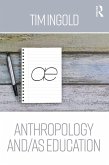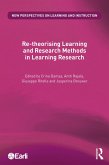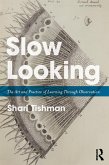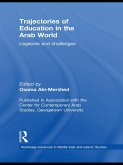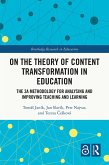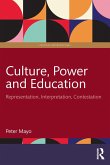Dieser Download kann aus rechtlichen Gründen nur mit Rechnungsadresse in A, B, BG, CY, CZ, D, DK, EW, E, FIN, F, GR, HR, H, IRL, I, LT, L, LR, M, NL, PL, P, R, S, SLO, SK ausgeliefert werden.
Michael D. Jackson, Harvard University, USA
"Tim Ingold has written a beautiful, coherent and imaginative book on education and anthropology. One of its many achievements is to connect the new and older philosophies of education from John Dewey to Gert Biesta with his own theories on attentionality and correspondence. Another is his argument for how anthropology and education are parallel endeavours. Most of all the book can offer educationalists from schools to universities a new vision of what education could be: an open-ended, generous journey where teachers and students travel side by side to explore life as it unfolds without rigid transmissions of prefixed dichotomies."
Cathrine Hasse, University of Aarhus, Denmark
"In proposing and forging words such as 'longing', 'undercommoning', 'togethering', 'doing undergoing', 'agencing', and especially 'corresponding/correspondence', and in exploring the 'lines of interest' and the milieu of ideas they open up, this little book offers an intriguing and inspiring vocabulary and toolkit to think and practice anthropology as/and education. There is no doubt that it contributes significantly to the elaboration of a much needed alternative for the dominant language of 'learning' in the field of education and of 'understanding' in the field of anthropology"
Jan Masschelein, University of KU Leuven, Belgium
"An impassioned argument for education that is about exposure and not immunization, Anthropology and/as Education asks us to do nothing less than rethink the role of education in the university today. Moving beyond transmission ("the death of education") toward transformation, Ingold proposes an anthropology of "undercommoning" that, following Dewey, takes seriously the relation between "doing and undergoing." Here, practices of knowing activate correspondences, making felt minor gestures that enliven experience. In this arena of study where one never studies alone, anthropology both "wonders and wanders," learning along the way how to follow and to attend differently to the world in its becoming. Against method, Ingold makes a plea: let the world become our multiversity and let the university learn, in the undercommoning, how to be restored to education. A gesture of care, this is a book we cannot do without."
Erin Manning, Concordia University, Canada



